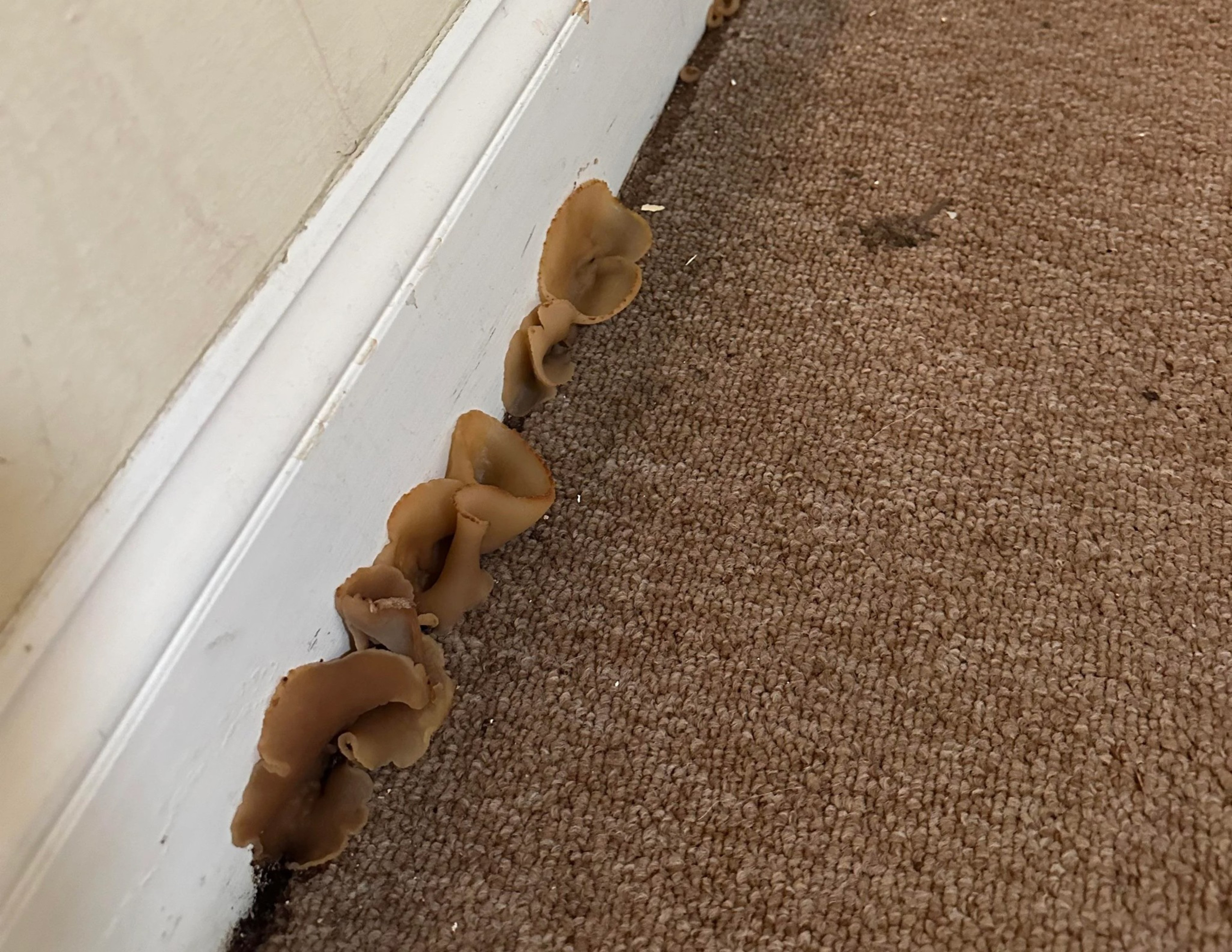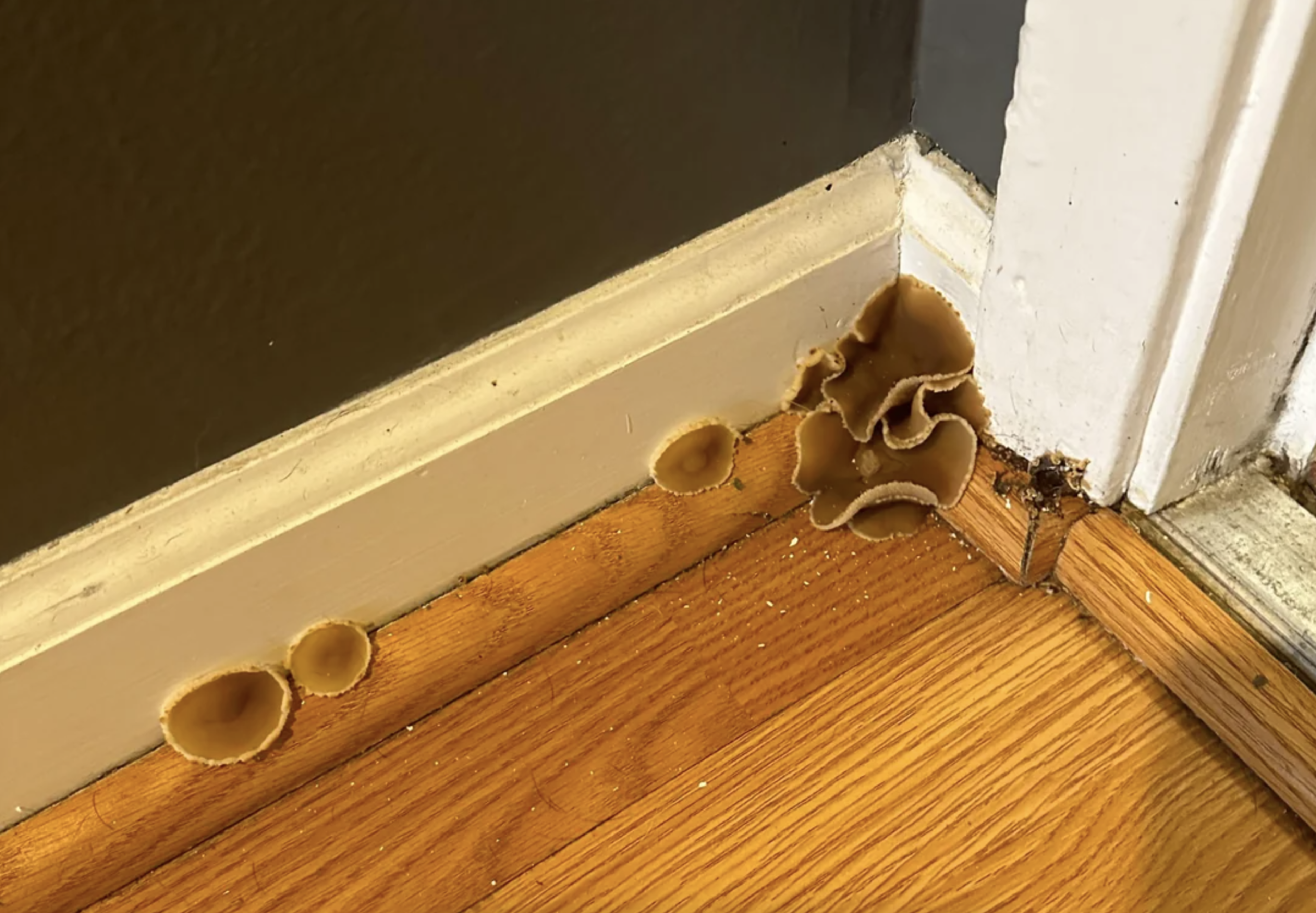How wet has it been in San Francisco this winter? Enough that mushrooms are sprouting from the baseboards in at least one resident’s damp apartment.
In a city where renting is notoriously tough, the prospect of coping with unwanted, freeloading fungal roommates has touched a nerve.
A Redditor who goes by the handle BandicootCumberbund shared a picture this week to the San Francisco forum (opens in new tab) of light brown mushroom caps sprouting from their apartment’s baseboard—along with an account of their futile bid to get help from their landlord and city departments. That set off a frenzied, disgust-tinged social media discussion about spores galore.
The post garnered 1,800 comments, ranging from outrage (“wtf is wrong with ur place”) to guidance (“Tell your landlord you are going to start hosting ‘pick your own’ foraging sessions”). One even identified the ’shroom and the solution: “That’s Palomino cup which grows on rotting wood. Your apartment probably needs subfloor replaced.”
So what’s a tenant to do when a no-fun fungus situation pops up?

Mold, a type of fungi that spreads by making spores, usually grows in homes on rotting food or in dark, damp areas like bathroom tiles, basement walls and around windows.
Mushrooms are another type of fungi that spread via spores. Those spores can stay dormant until they reach the perfect environment, such as dead trees and stumps. Mushrooms love constant moisture and a low-light environment.
Mold can be dangerous to one’s health, causing asthma, headaches and lethargy. California’s Toxic Mold Protection Act requires landlords to provide tenants with written disclosure of mold if pervasive enough. Landlords who fail to meet the provision or fail to remedy mold upon detection of it can face legal action.
“If it happens in San Francisco, quite frankly, you’re better off as a tenant,” said Gregory Brod, an attorney who works on habitability cases. “More protections are provided than other places, but if you’re in San Mateo County, for example, you might be having a much much different situation in terms of how quickly and how efficiently something like this is gonna get addressed.”
Fixing a funky fungus problem can involve tearing down walls and rehanging windows—the type of construction that can force a person to move for a time, or permanently.
The best course of action for a tenant is to contact their landlord in writing to make them aware of the fungus, Brod said.
“It’s not too frequent that a landlord is going to just blow it off,” Brod said, adding that there are pretty severe penalties.
If the landlord is not cooperative, a tenant can call 311 to file a complaint with the city. This will create a paper trail and notify multiple city departments of the matter.
Depending on the circumstances, the tenant may get assistance from the Department of Building Inspection and/or the Public Health Department.
Kelley Omran, a spokesperson for the building department, said the department normally receives an increase in mold-related complaints during the rainy season.
“DBI housing inspectors will cite property owners and managers for mold issues that are caused by water damage, such as leaks or intrusion,” Omran said.

While the building department has the authority to require owners to remove or replace a building’s walls or carpets, mold issues unrelated to water damage are handled by the public health department.
“We prioritize educating tenants on preventing mold through proper ventilation practices,” a DPH spokesperson said. “In cases where DPH issues a Notice of Violation to the owner for mold abatement, we require them to remove the mold using soap, vinegar and water. In some cases, repainting surfaces might be necessary.”
The San Francisco Rent Board, a city department that enforces the city’s rent ordinance, fields all manner of landlord-tenant issues.
Other possible solutions for tenants seeking relief from a fungal invasion include filing a “substantial decrease in housing services” petition (opens in new tab)—which can get you a break on rent or relocation payments for evictions based on temporary improvement work, substantial rehabilitation or temporary displacement.
If there’s a shroom boom in your building, let’s hope it’s the kind grown from a kit.
